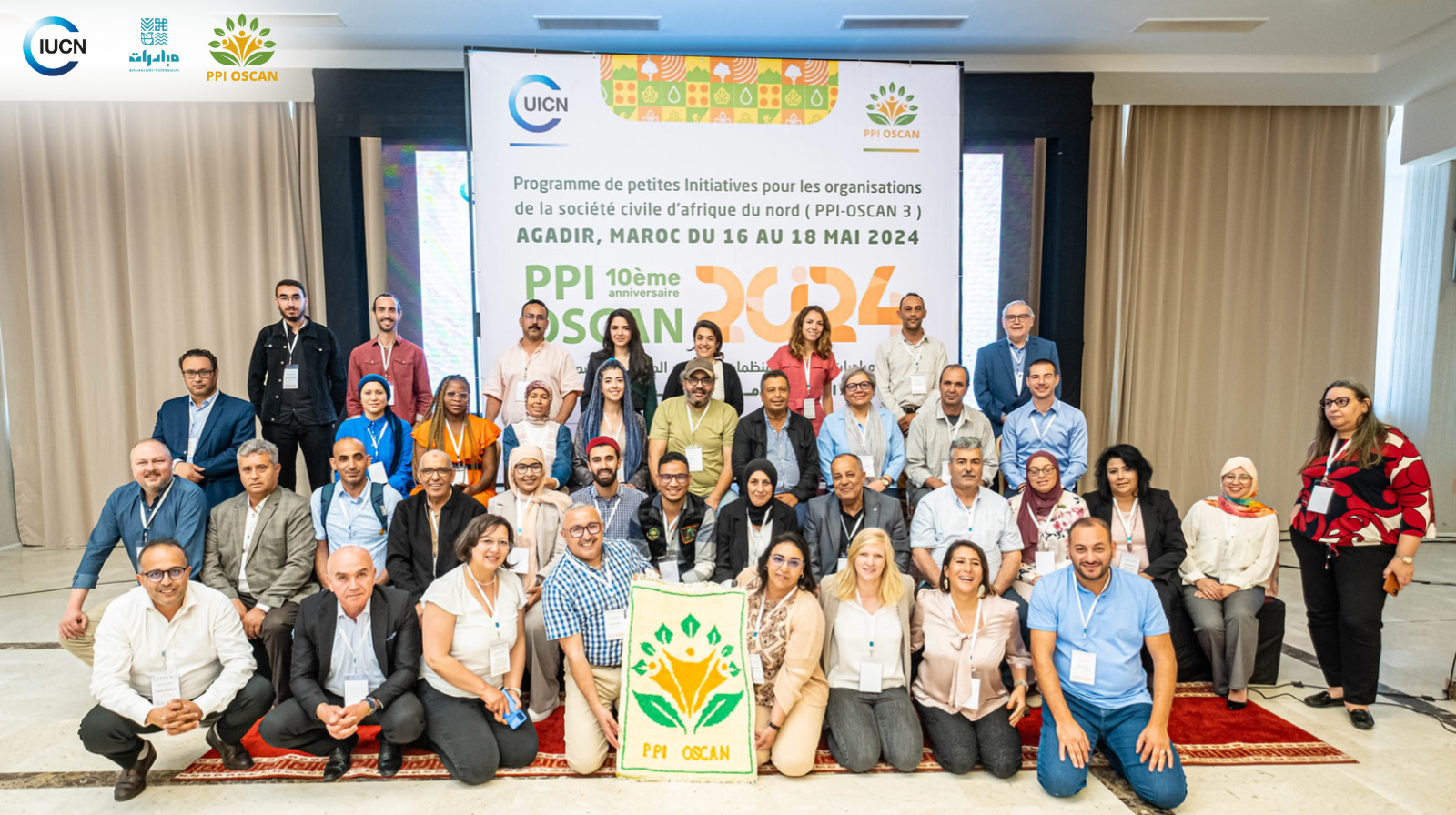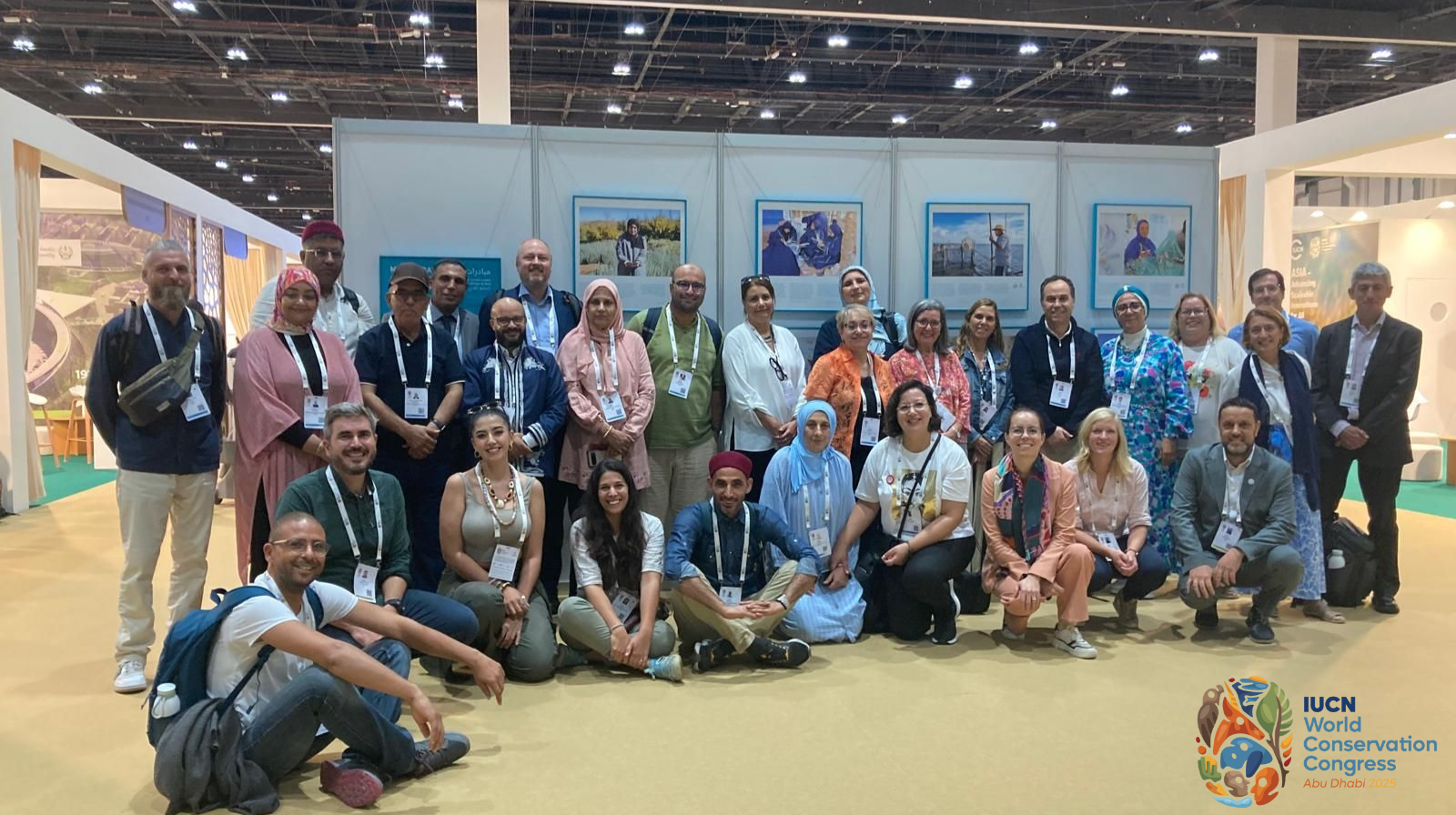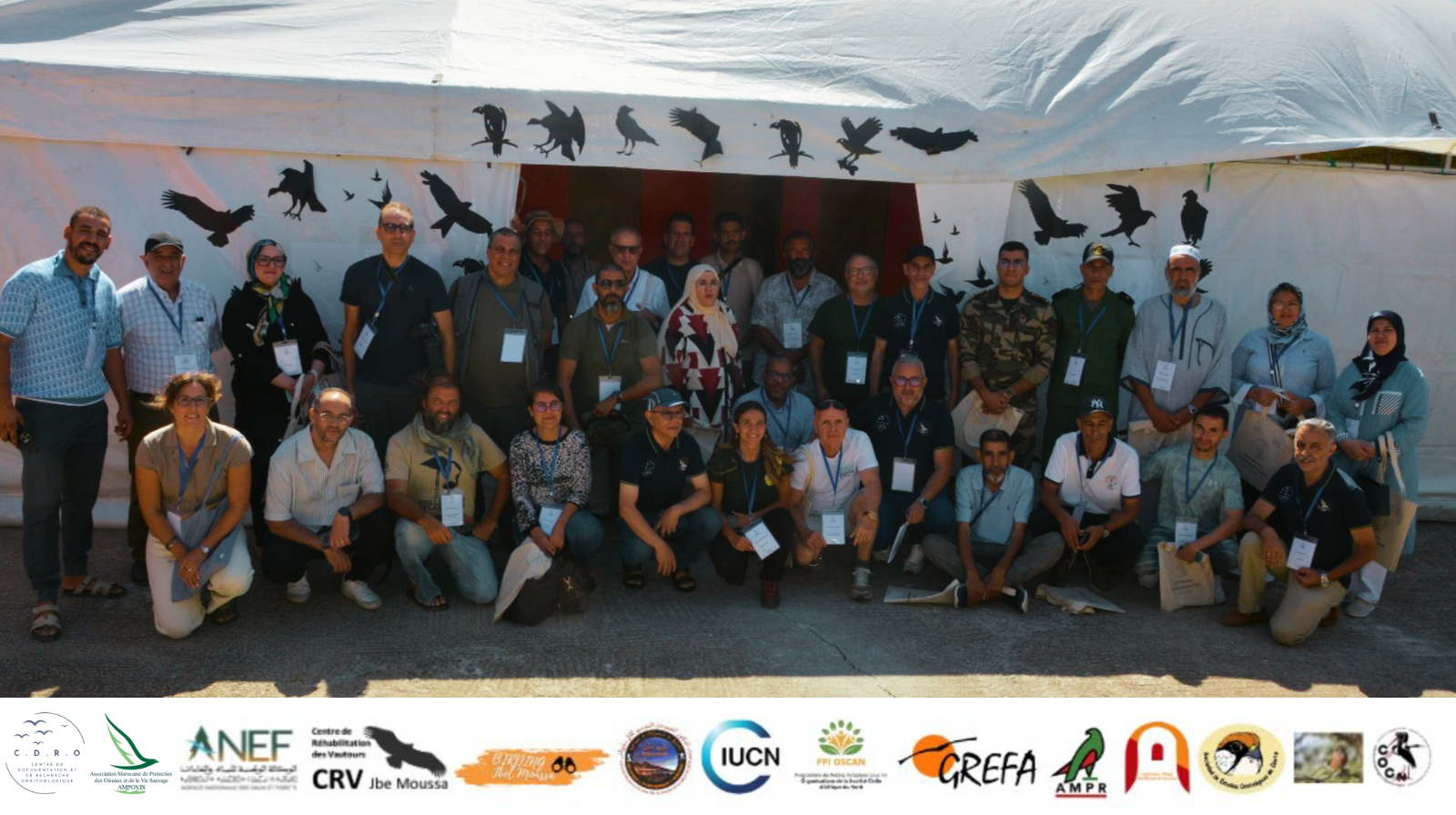A Project to Valorize the Cultural and Natural Heritage of the Kerkennah Islands
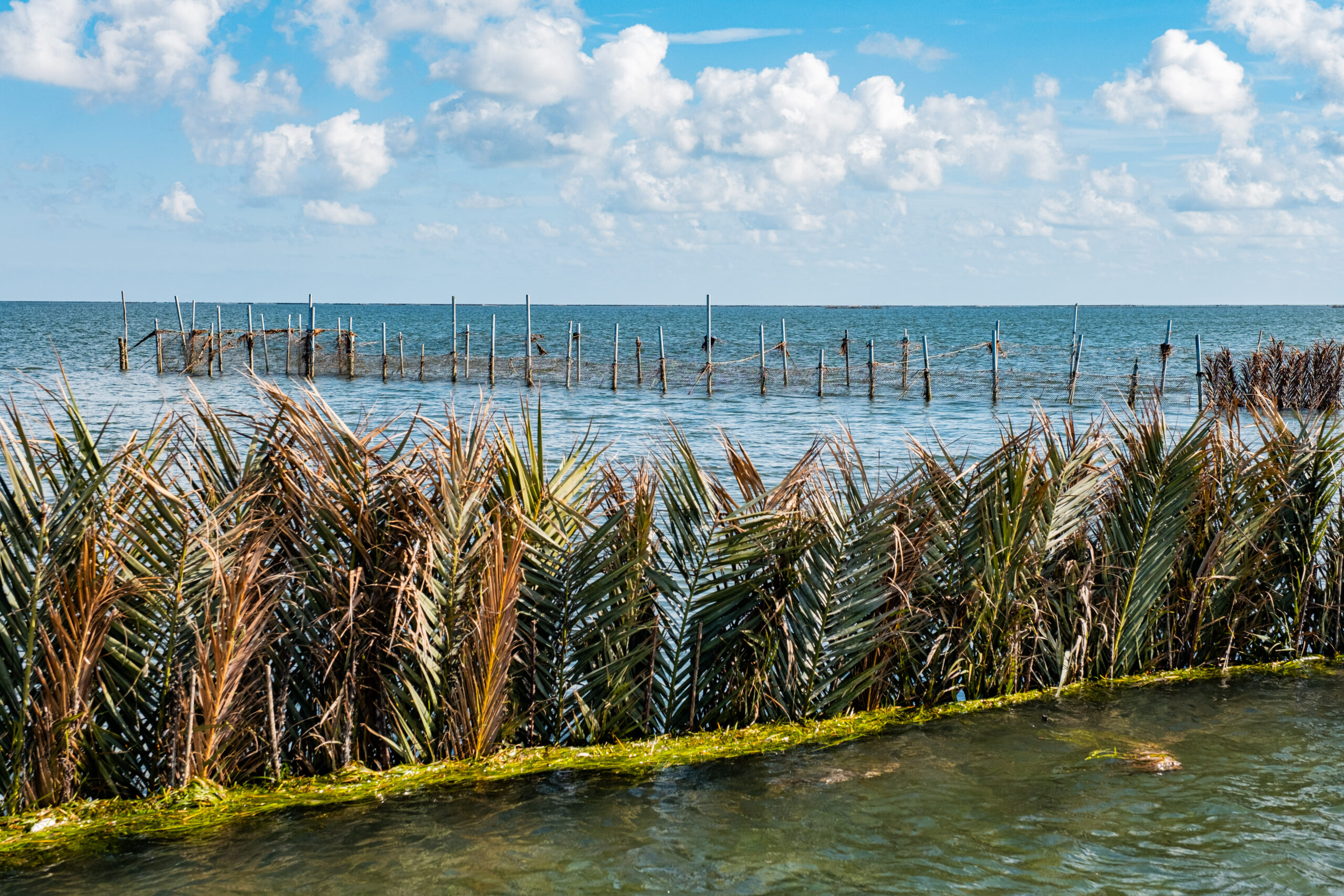
The Regional Ecological Observatory of Sfax (ORES), an association established in 2016 to study the impacts of pollution and raise awareness among local stakeholders, initiated the “From Palm Trees to Charfia” project in 2023 with the support of the PPI-OSCAN program. This ambitious project aims to preserve and valorize traditional fishing on the Kerkennah Islands by developing palm tree plantations, whose leaves are used to make sustainable nets, thus replacing grids and plastics. This initiative strengthens efforts to conserve Tunisia’s cultural heritage, especially following the inclusion of charfia on the Representative List of the Intangible Cultural Heritage of Humanity in 2020.
Charfia Fishing: A Tradition Rooted in Kerkennah Culture
Charfia is a unique fishing technique that utilizes the natural conditions and marine resources of the Kerkennah Islands. This fixed system involves setting up palm walls on the seafloor to form a triangular field where fish, attracted by the falling tide, become trapped in capture chambers, then in nets or traps. Unlike modern techniques that destroy marine habitats, charfia allows the fish to remain alive until the traps are lifted, ensuring more sustainable fishing.
This traditional technique, mainly used between the autumn equinox and June, is not only a livelihood but also a fundamental element of the social and cultural identity of the Kerkennah Islands. The reconstruction of these fishing structures, often associated with community rituals such as shared meals or prayers, strengthens social bonds within the local population.
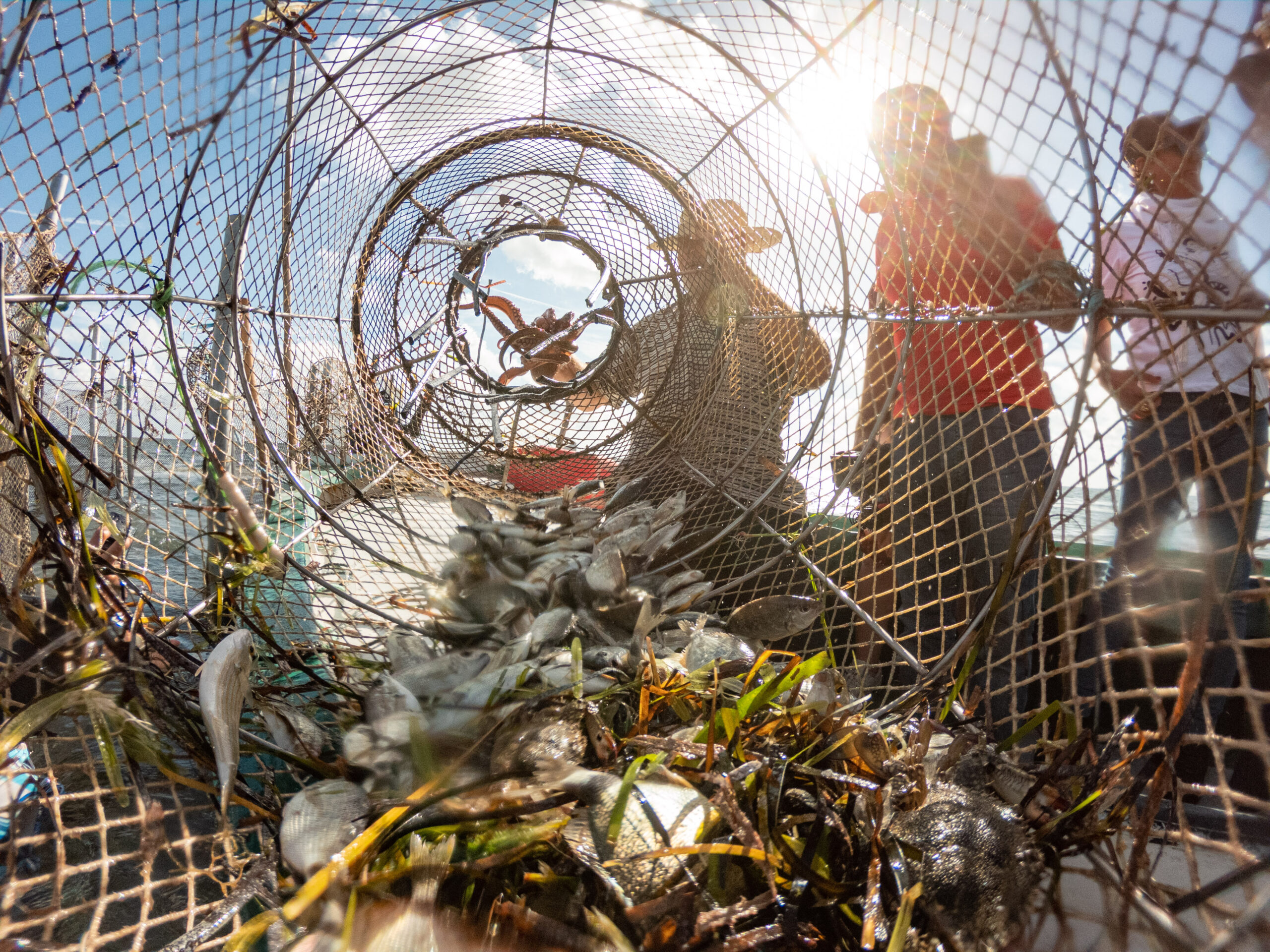
Objectives of the “From Palm Trees to Charfia” Project
The “From Palm Trees to Charfia” project aims to:
- Valorize the local palm trees, which are a key resource for making charfia.
- Preserve the traditional fishing technique and local knowledge by actively involving the community in protecting and transmitting this heritage.
- Promote charfia fishing as a sustainable and environmentally friendly technique.
To achieve these objectives, ORES has implemented several key initiatives:
- Replanting Palm Trees: In collaboration with local farmers, 138 Bahri variety palm trees were purchased and planted in 20 plots across the island, covering a total of 18 hectares. 95% of the palm trees are in excellent health, ensuring the sustainability of the resource for charfia fishing.
- Maintenance of 29 Plots: These plots, located in strategic areas such as Mellita, Ouled Ezedine, Ramla, Attaya, and Kraten, are regularly maintained to ensure the productivity of the palm trees.
- Awareness and Training: A steering committee was established to raise awareness among local fishermen and farmers about the importance of the palm tree value chain in the region’s socio-economic development. This committee includes 32 participants, 21 women and 10 men, to share best agricultural practices and ensure sustainable resource management.
The project also addresses a major challenge in the region: the trend in recent years to prioritize olive tree cultivation due to the increasing demand for olive oil. However, thanks to the efforts of ORES and other associations, there is a gradual return to palm tree cultivation, with growing demand for this vital resource.
A Key Partnership for the Success of the Project
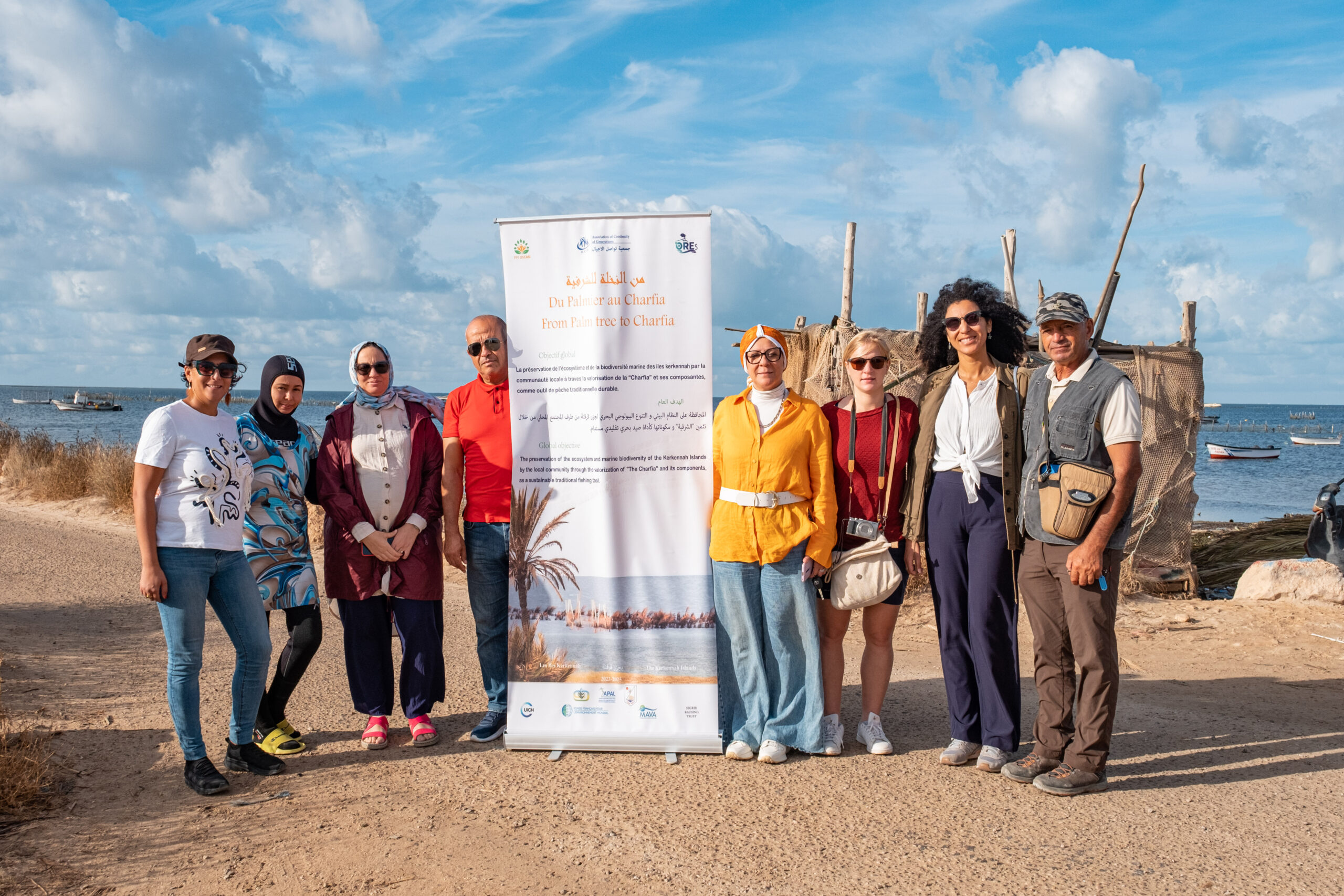 L’Association de la Continuité des Générations (ACG) ,a member of the Tunisian IUCN Committee, was a key partner in providing technical support and implementing the project’s actions. Their expertise helped strengthen ORES’ capacity, facilitating the achievement of the project’s goals while ensuring the sustainability of the actions taken.
L’Association de la Continuité des Générations (ACG) ,a member of the Tunisian IUCN Committee, was a key partner in providing technical support and implementing the project’s actions. Their expertise helped strengthen ORES’ capacity, facilitating the achievement of the project’s goals while ensuring the sustainability of the actions taken.
A Promising Future for the Kerkennah Islands
Thanks to the PPI-OSCAN 3 program (coordinated by IUCN-Med and funded by the French Fund for the Global Environment (FFEM), the MAVA Foundation and the Sigrid Rausing Trust ),The “From Palm Trees to Charfia” project has had a significant impact on the preservation of palm trees and traditional fishing on the Kerkennah Islands. It has strengthened the connection between the local community and its environment while contributing to a sustainable economy. The commitment of ORES and its partners highlights the importance of involving local communities in managing their natural resources, ensuring a more prosperous and environmentally respectful future for the Kerkennah Islands.
Explore the ‘From Palm to Charfia’ project by ORES, supported by PPI-OSCAN, safeguarding Kerkennah Islands’ traditional fishing. An initiative reviving palm cultivation, preserving local heritage, and promoting sustainable UNESCO-listed Charfia fishing techniques.



